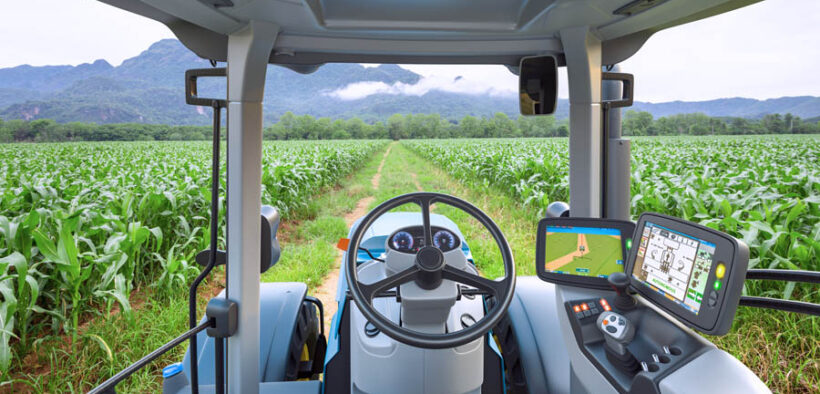Tech offers path to transform Puerto Rico’s agriculture

Puerto Rico’s agriculture has long been defined by small and medium-size farmers, many of whom operate under constant pressure from hurricanes, droughts, limited land and rising costs. Yet, amid these challenges lies an unprecedented opportunity: the integration of modern technology.
Around the world, farmers of similar scale have shown that innovation is not the sole privilege of industrial agribusiness.
With the right tools, Puerto Rico’s agricultural sector can thrive, boosting productivity, ensuring food security and cultivating a new generation of competitive, tech-enabled farmers.
Precision agriculture
One of the most promising areas of innovation is precision farming, which uses data and digital tools to optimize decisions. Farmers in Brazil, Kenya and Spain now rely on drones, satellite imaging and soil sensors to understand their fields. Instead of applying pesticides and fertilizers uniformly, they target only what is needed, minimizing waste, enhancing safe use and improving profits.
Small rice farmers in India, for example, use smartphone apps linked to low-cost sensors to track soil moisture and nutrients. This has reduced fertilizer use by up to 30% while increasing yields. In Latin America, coffee growers deploy drones to detect early signs of disease invisible to the human eye.
Puerto Rican farmers could benefit from these same tools. By reducing pesticide use and focusing on applications only where necessary, they can save money, protect ecosystems and deliver safer products to consumers. These methods also help meet stricter food safety standards and open doors to export markets.
Safer pest control
Traditionally, pesticide use has been one of the most pressing cost and health challenges. Today, technology is offering safer, more efficient alternatives.
In Israel, AI-powered smart spraying systems reduce chemical applications by more than 50%. Cameras mounted on tractors analyze crops in real time, targeting weeds rather than spraying entire fields. Similarly, greenhouse operators in the Netherlands use sensors and climate control to naturally deter pests, limiting chemical intervention altogether.
For Puerto Rico’s fruit, vegetable and coffee growers, adopting such practices could not only protect workers and consumers but also strengthen the island’s reputation as a supplier of clean, sustainable products, an increasingly valuable market position as consumers demand transparency and traceability.
Controlled-environment agriculture
Seasonality is another critical challenge. While Puerto Rico enjoys fertile soil and a tropical climate, hurricanes and shifting rainfall patterns disrupt harvest cycles. Controlled-environment agriculture (CEA), offers stability and maximized yields.
In Singapore, vertical farming companies grow leafy greens year-round using hydroponic systems in limited urban spaces. In Colombia, small tomato farmers use low-cost plastic greenhouses to protect crops from excessive rain while extending the season by weeks.
Locally, Grupo Vesan has pioneered indoor vertical farming in the Caribbean, operating modular systems that enable year-round production of fresh, contaminant-free crops, reducing reliance on imports and improving food security.
For Puerto Rico, broader adoption of vertical farms and affordable greenhouse technologies could reduce dependence on imports, which still make up more than 85% of the island’s food supply. Urban vertical farms could deliver steady fresh produce, while rural farmers could better withstand storm damage and drought.
Digital marketplaces
Technology is also transforming how farmers reach consumers. Worldwide, small farmers are leveraging digital platforms to bypass intermediaries and connect directly with markets.
In Kenya, Twiga Foods links farmers to vendors via a mobile business-to-business platform, reducing waste and ensuring fair prices. In Mexico, avocado growers use WhatsApp and online cooperatives to negotiate with exporters.
In Puerto Rico, platforms such as PRoduce and Al Sol de Hoy now allow consumers to purchase farm-fresh goods online. Farm websites and social media communities on Facebook, WhatsApp and Instagram further strengthen ties between producers and consumers. When combined with digital payment systems, these platforms can provide significant advancements in transparency, traceability and food sovereignty.
Education and partnerships
The most crucial ingredient for success is education. Farmers must be empowered to adopt these innovations. Globally, governments and private organizations are investing heavily in training. Brazil’s Embrapa runs extensive field schools teaching small farmers to use drones, apps and sensors. In the U.S., university-linked cooperative extensions provide firsthand guidance.
In Puerto Rico, the University of Puerto Rico’s Mayagüez campus and local agricultural cooperatives can and do play a similar role, offering training, workshops and access to shared technology hubs to ensure small farmers are not left behind.
Upfront costs, limited financing and infrastructure gaps remain hurdles. But these can be addressed through strategic partnerships. Federal recovery funds, local government incentives and collaborations with private technology providers could make advanced tools accessible even to the smallest producers.
A resilient future
The ultimate prize is not just higher yields or lower costs, but a resilient agricultural system that feeds Puerto Ricans, reduces import dependence and positions the island as a regional model for sustainable farming.
Puerto Rico has always been an island of resilience and innovation. By embracing modern agricultural tools, its farmers can cultivate not only crops but also a new future, one where technology and tradition work hand in hand to secure prosperity for generations.
Global trade trends, and their expected higher import costs, demand that we support and sponsor local agri-tech efforts, which are no longer optional and are key to a sustainable and cost-effective agricultural future. Puerto Rico’s food security depends on it.

Raúl Burgos is the president and managing partner of Global 1080 Business Solutions, a consulting firm with more than 15 years of experience advising business leaders in the United States, Puerto Rico and Latin America. With more than 30 years of business experience, he also founded the Puerto Rico Business Group on LinkedIn, a professional community of more than 30,000 members focused on the island’s economic development and entrepreneurship.




